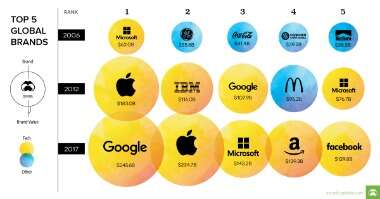3 Up-and-Coming Fintech Stocks to Put on Your Must-Buy List

With lesser regulation, fintech companies can suffer from poor internal discipline around customer identity verification among other things. This raises the risk of fraudulent activity and potentially exposes fintech to increased regulation going forward. Fintech companies must also manage competition from small and large companies, ongoing threats of cyberattack and the risk of technological failure. Examples include mobile banking apps, peer-to-peer payment apps, automated investment portfolios, investment apps and cryptocurrency trading and wallet apps. Tech companies have been disrupting and revolutionizing every corner of the economy for decades, but financial services were long considered a stubborn holdout to this trend. But over recent years, tech startups have made serious inroads, applying software, analytics and data to build online platforms and apps with features that improve—or even replace—conventional financial services.
Technology is changing every industry, and its mark on the financial industry will be profound. Fintech is important, as it opens crucial financial services to the world’s underbanked population and makes Forex patterns it less expensive for global consumers to move and manage their own money. These companies are not only offering catalysts for these changes, they also offer investors the best chance to profit from them.
That spiraling growth potential could be very lucrative for investors who get in early. The flip side, of course, is that potential doesn’t always translate to realized returns. Evercore ISI analyst David Togut reiterated an Outperform (Buy) rating on Block stock following the recent quarterly performance. Togut is optimistic that Cash App’s gross profit growth would reaccelerate following challenging year-over-year comparisons. As part of its transformation efforts, PayPal is targeting a cost reduction of $900 million in 2022 and savings of at least $1.3 billion in 2023.
2 Potentially Explosive Stocks to Buy in September – The Motley Fool
2 Potentially Explosive Stocks to Buy in September.
Posted: Tue, 05 Sep 2023 13:45:00 GMT [source]
To help you better understand this enticing business, Forbes Advisor has profiled ten of the largest privately held fintech companies on earth. Since they have not yet held an initial public offering, you cannot buy shares of private companies on the stock market. That also means that private market valuations are estimates based on the firm’s last private capital raise.
Consumer
This is especially true in rough economic times, as we’ve seen over the past year or so. Based in the Netherlands, Adyen provides payment processing solutions to businesses and has operations around the world (including a large U.S. presence). It offers payment solutions for in-person, online, and mobile channels. But, unlike the other major payment processing tech companies, Adyen focuses almost exclusively on large businesses. Microsoft (MSFT -0.2%), Uber (UBER -0.27%), and McDonald’s (MCD -0.86%) all rely on Adyen for their payment processing needs. You may recall that eBay dropped PayPal as its preferred payment processor a few years ago; it turned to Adyen.

Standing as one of the ultimate players in the skyrocketing cryptocurrency market, the cryptocurrency exchange, Coinbase Global went public in 2021 and is known predominantly for the rapid rise of BTC over the past few years. It is the largest cryptocurrency exchange in the USA by trading volume. While there are loads of avenues you could choose https://investmentsanalysis.info/ to invest in from the real world, we’d like you to be a part of the new era of Fintech 2.0. Follow Reinhardt Krause on Twitter @reinhardtk_tech for updates on 5G wireless, artificial intelligence, cybersecurity and cloud computing. In addition, Fidelity National in March 2019 agreed to buy Worldpay for $35 billion in cash and stock.
Fiscal Quarter
And, even for those that would be considered risky, the long-term return potential can certainly justify the risks. Some fintech stocks are among the most rock-solid companies in the world and could be considered very safe stocks, while others are high-growth stocks with tremendous return potential but also with a lot that could go wrong. Fintech companies belong to a few IBD groups, including financial software and finance-investment management. The biggest IBD group of fintech stocks ranks only No. 111 out of 197 industry groups tracked. But, the stock’s 80% pullback from its 2021 high to this month’s new multiyear low just doesn’t make sense. It’s still the digital payments industry’s single-biggest player, after all, and it’s still growing despite the wind-down of the emergency phase of the pandemic, when consumers avoided brick-and-mortar stores and shopped online.
- According to the company, 12,000 financial institutions are connected via Plaid.
- Below is a bit more about some of the stocks in our theme and how they have been faring.
- Despite this, the fintech sector holds substantial long-term potential.
- With lesser regulation, fintech companies can suffer from poor internal discipline around customer identity verification among other things.
- Bolt’s market cap could be far lower than the past official valuation.
On the other hand, payment processors such as Visa and Mastercard are somewhat less cyclical because, while they rely on fee income from spending, they are not lenders and don’t have as much default risk. On a similar note, a durable competitive advantage (or several) can help level the playing field between large, established companies and small, disruptive fintechs. With the BNPL offering, Apple will compete versus Affirm, Square and others. Credit card networks Visa (V) and Mastercard (MA) hold Composite Ratings of 88 and 95, respectively, out of a best-possible 99 following their third-quarter earnings reports.
Regulation and Fintech
The market cap of the firm is $17.5 billion and it posted more than $6 billion in profits in December 2020. The company’s stocks performed well during the pandemic since the online-only bank nature of its business helped customers stuck at their homes. The firm is aiming to replicate its success in the auto industry with expansion plans into the mortgage market to meet growth targets. Ally Financial is one of the best performing fintech stocks to buy for 2021 as it is expected to give handsome returns to investors.
Plus, it recently entered the buy-now, pay-later lending space with its acquisition of Afterpay. Amongst the most valuable companies in the world, Visa facilitates electronic funds transfers throughout the world, most commonly through Visa-branded credit cards, debit cards and prepaid cards. Visa recently began using Ethereum’s blockchain to easily convert digital currency into fiat currency. The company partnered with Anchorage, a digital asset bank, to achieve faster transactions, more transparency, and even more influence for Visa in the fintech space. The company has a market cap of over $104 billion and reported a revenue of more than $9.5 billion in December 2020.
What are some risks associated with investing in fintech stocks?
Furthermore, the company is increasing its focus on its core Checkout business, its PayPal and Venmo digital wallets, and the Braintree platform. However, the company trimmed its 2022 revenue guidance, now expecting growth of 11% on a currency neutral basis compared to the prior growth outlook of 11%-13%. Impressed with Visa’s performance, Morgan Stanley analyst James Faucette raised his price target for Visa stock to $291 from $284 on higher EPS estimates. The analyst is positive about the Dow Jones stock based on “limited impact from macro headwinds,” coupled with continued rebound in cross-border travel. As for recent financial performance, MA topped analysts’ expectations for the second quarter of 2022, as a strong rebound in travel helped drive a 58% rise in cross-border transaction volumes.
With this context in mind, here is a look at the top 10 best fintech companies and stock options in 2021 that are expected to pay good dividends to investors this year. The technology could play a role in securities clearing and settlement, digital identity and payments as soon as 2025, say the most bullish observers. Blockchain is the software technology behind Bitcoin and other cryptocurrencies. It’s a shared public ledger, which tracks transactions and ensures that the record of those transactions remains transparent and tamper-proof. The business-to-business payment industry is shifting from paper checks to automated software tools and digital platforms. Incumbents in the B2B payments market include Worldpay, First Data and Total System Services.
Fintech—short for financial technology—is an emerging class of companies that use technology to automate and improve financial services for businesses and consumers. It is worth noting that most of the underlying “plumbing” (i.e., the nuts and bolts that underpin financial transactions) is still almost entirely provided by traditional banks. For example, for any loan to an SME, a bank is required to hold 85% of the loan amount in regulatory capital.
As financial technology improves, consumers are paying in cash far less often. It began as a way for small businesses to accept credit card payments without having to buy expensive point of sale systems. The market for pre-paid debit cards is shrinking, but it has shifted its focus to other personal finance and business products to grow its client base.
The company offers users the ability to move funds from one bank to another on low rate exchanges. It also lets users make an account that holds, accepts and moves money in many different international currencies. It has also launched its own debit card to go along with the account.
Impact of the development of FinTech by commercial banks on bank credit risk
The lucky few that have just raised funds or have a sustainable business model will prevail. And the fintech industry will likely emerge even stronger with a few dominant players. Our leading training programmes, curated by global industry experts, help talent build skills to join the digital revolution in finance. CFTE’s courses are globally recognised with accreditations from ACT, IBF, CPD, SkillsFuture and ABS. The entire year of 2021 saw growing deal sizes especially across the subsectors of Fintech such as crypto, blockchain, wealthtech and cybersecurity.


No Comments